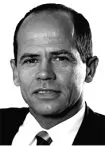In his latest blog, our KYC expert explains how the value of compliance teams cannot be underestimated by companies, both big and small.
In general, being compliant means conforming to a rule such as a law, regulatory guideline, policy or standard. The global compliance burden continues to grow and ensuring compliance takes tremendous effort not just for international groups, but also for local companies, especially if they want to enlarge their market and start doing business across borders.
Clients need a team of experts when it comes to cross-border affairs and the compliance officer is becoming a sought-after specialist. But he cannot be a superhero as he cannot intimately know all about the relevant accounting, tax, legal, regulatory, social security, AML, and so on. Therefore he has to be supported on a regular basis by very skilled and experienced professionals who are steadily involved in creating and managing structures all around the world.
Casuistry is essential for being ready to face the unique situations that a group has to solve on a regular basis. Laws and regulations run parallel, often they have points of contact but sometimes they go in different directions. And that's before you factor in how important local knowledge is, the need for thorough awareness of cultural nuances in different jurisdictions.
Sustainable capitalism – the proposition that business should be judged through not just economic but also social and environmental measures - is coming. Consequently decision-making's environmental, social and governance issues will require integration with the need to understand the risks and opportunities of business. This requires investment, and experts with a pragmatic approach.
Regulators and authorities have begun to share information, collaborating on investigations. The capacity of the compliance team (internal and external) to prevent problems and face future challenges in this globalised world of increasing complexity is an area in which TMF Group has invested a lot to help clients.
The compliance officer needs to have an overall understanding of what is happening in the group. The combination of knowledge of the company's business, vision, flexibility, sensibility, experience and pragmatism are common characteristics of this role.
It is incredible how the role of the compliance professional has changed. No longer a second-tier role (snubbed by the money makers), but a crucial one, requiring outstanding professionals to work alongside top level management, and be supported by leading providers.
Read more about Know Your Client.
The content of this article is intended to provide a general guide to the subject matter. Specialist advice should be sought about your specific circumstances.


